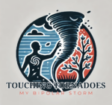I am, I have.
Do you say I am bipolar, or I have bipolar.
How often do you have to say this? I don’t find that it comes up often enough to worry about it much. Unless we are talking about how we internally think about our disorder, in which case, I think about it constantly. I understand the comparison: people don’t say “I am diabetes,” but they do say “I am diabetic”; they don’t say “I am a broken arm,” but they might say “I have a broken arm.” Yet, just as likely, they may say “I am injured.” Would we stop them and say, “You’re not injured, you have an injury”? If we believe it is a lifetime chronic illness, then once we experience the symptoms, get diagnosed, and accept that we have to manage it for the rest of our lives, it becomes a part of us. I don’t think that whether you say “I am bipolar” or “I have bipolar” affects the person you are telling. How they handle that information is based on their attitude toward mental health. If we are saying it a certain way to reframe it in our own minds, is the reframing to remind ourselves that it wasn’t our fault? Is it because we have a stigma about it? A person might say, “I have HIV,” or “I am HIV-positive”; either way doesn’t lessen the severity of that statement for either the speaker or the listener. I know that a person with cancer doesn’t say “I am cancer,” but when they beat it, they say “I am a survivor.” Which is what you are. You are/have bipolar, and you’re a survivor. Ultimately, since it is your illness, your responsibility, and perhaps even your gift, call it whatever makes you happy.
Your Manic Depressive Friend,
Conrad
